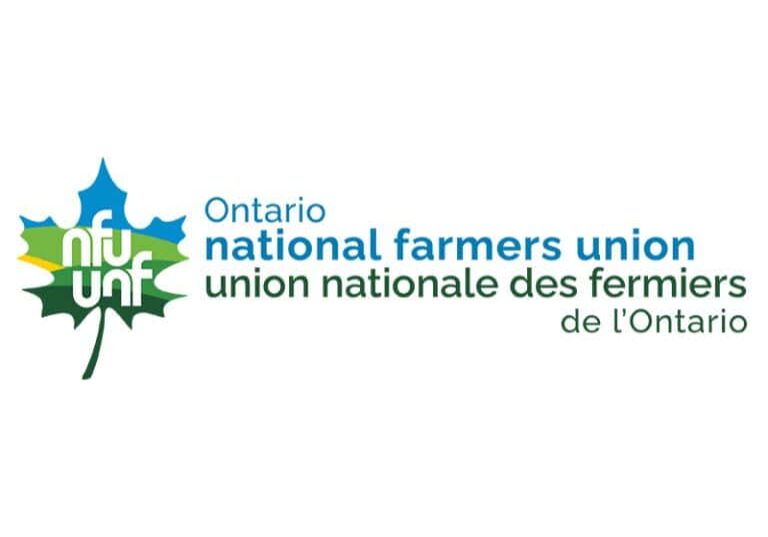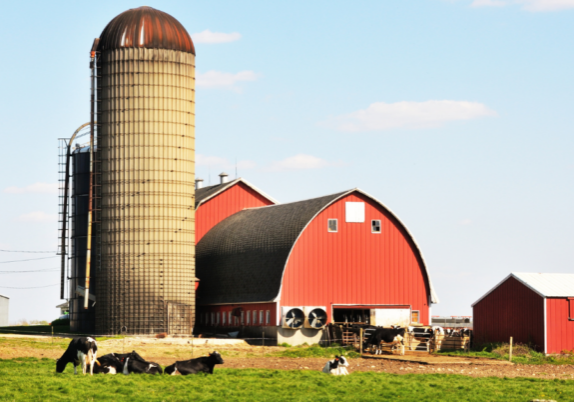Response to Proposed Planning Act and City of Toronto Act Changes (ERO 019-6163)

Re: ERO 019-6163 Proposed Planning Act and City of Toronto Act Changes (Schedules 9 and 1 of Bill 23 – the proposed More Homes Built Faster Act, 2022)
Dear Minister Clark,
The National Farmers Union – Ontario (NFU-O) is writing to voice its concerns regarding the proposed Planning Act (PA) and City of Toronto Act Changes (Schedules 9 and 1 of Bill 23 – the More Homes Built Faster Act, 2022).
The NFU-O is an accredited farm organization representing thousands of sustainable farmers in Ontario. We have advocated for farmers across Ontario and Canada since 1969. Members work together to achieve agricultural policies that ensure dignity and income security for farmers, while protecting and enhancing rural environments for current and future generations.
For years the NFU-O has advocated responsible development, smart densification, and the realization of complete communities in existing built-up areas, alongside the preservation of farmland and natural heritage areas. Just this past spring, we called on Durham Regional Leadership to advance responsible density and affordable housing construction within existing urban boundaries while supporting the extension of Greenbelt protections. We also responded to the Ontario Government’s request for feedback on Housing Needs in Rural and Northern Municipalities, stressing that it is possible—in fact, it is critical—to balance farmland and natural heritage protection with affordable housing needs in rural and urban areas.
The proposed weakening of a variety of Planning Act (PA) land protections is deeply troubling:
– We are opposed to the removal of site plan control for residential development, a critical municipal tool to build climate-resilient, complete communities and ensure development is compatible with surrounding land uses, including agricultural operations.
– We stand against the “streamlining” of policy to ensure “access to aggregate resources,” especially when the removal of “red tape” will lead to aggregate extraction that will negatively affect groundwater, sensitive ecosystems, and neighbouring agricultural land. The “2-year timeout” period is an important protective measure that allows experts and interested parties opportunities to assess the impacts of an operational quarry prior to any further site extension to aggregate extraction.
– The potential of the PA changes to reintroduce farmland severances for developments of any kind will lead to increased speculation and the removal of finite agricultural land from production.
– We disagree with the changes to the PA that limit Conservation Authorities (CAs) from appealing land use planning decisions save for where they pertain to matters strictly related to natural hazard policies.
– We call on the Government to abandon the proposed changes that ease CAs’ abilities to sever and dispose of protected land. The CAs are there to protect land not dispose of it.
None of these anti-environment and anti-farmland measures are necessary to support affordable, smart densification within existing settlement area boundaries.
There are also frightening anti-democratic and anti-expert measures within the proposed changes to the Planning Act:
– There is no need to limit third-party planning appeals from the Ontario Land Tribunal. There are other ways to address the appeals backlog without stripping farmers and other concerned citizens from the right to question or challenge development projects that might not meet minimum density separation (MDS) standards, cause flooding, or have other negative environmental impacts.
– Similarly, the removal of the requirement to hold public meetings to discuss subdivision plans within the PA diminishes opportunities for meaningful public engagement and stakeholder input. We are particularly concerned by the ramifications this denial of community consultation will have in agricultural areas.
– Removing Upper Tier Planning requirements in the PA takes critically important responsible growth policies and qualified experts out of the planning process. This is a mistake. Coordinated and regulated upper-tier municipal planning ensures that we avoid haphazard and ill-informed urban sprawl.
The NFU-O agrees with the intent behind strengthening the “additional residential unit” framework, but the vast majority of these changes to the PA seem designed to line developers’ pockets, and undermine municipal revenues, not incentivize the construction of affordable, smart development:
– We agree with proposed changes that would allow “as-of-right” up to 3 units per lot in many existing residential areas. The Government could go further by ending exclusionary “single detached zoning” and support mid- to higher densities in rural and smaller towns, so long as this higher density housing is within existing, designated settlement areas and does not eat away at important farmland.
– Changes in the PA that support higher density around protected transit station areas is welcome, but so too is allowing “as-of-right” missing middle zoning within existing settlement boundaries everywhere and providing greater Provincial financial support to strengthen public transit systems in underserved urban and rural areas.
– We believe removing the ability for municipalities to impose development charges, including parkland dedication, minimum unit sizes, green-building regulations, etc. will have limited effect in meeting housing needs, and instead will force municipalities to raise property taxes to recoup lost revenue, undermine green construction, and thwart the creation and protection of parkland spaces. The only economic effect of the proposed changes to the Development Charges Act will be to shift the financial burden of growth-related capital costs downstream, from developers to property taxpayers to renters. This is not affordable housing.
– Rural municipalities and their constituents will be disproportionately impacted by the changes to the Development Charges Act as many lack the capacity (staff budgets, expertise, etc.) to perform the downloaded responsibilities.
The proposed changes to the Planning Act within ERO 019-6163 undermine farmland and environmental protections and trample on democratic and expert decision-making processes. While the changes offer some incentives for developers to build essential “missing middle” (mid- to higher-density housing units), it is just as likely that developers will pocket potential savings as profit, and any construction (missing middle or otherwise) will come at the expense of municipalities, taxpayers, and natural heritage, recreational park, and agricultural land.
We call on the Government to immediately repeal Bill 23 and to abandon these proposed changes to the Planning Act.
We encourage the Ontario Government to stop taking its orders from a handful of wealthy developers. Instead, we call on the Government to work with planning experts, municipal leaders, environmental organizations, housing advocates, farmers and other concerned and informed citizens—the vast majority of whom have raised concerns with, if not outright
opposition to these anti-environment, anti-farmland, anti-democratic, anti-expert, and pro- developer policy revisions—to institute an equitable, just, and balanced housing strategy that protects our environment and farmland and supports livable, green, and affordable housing developments within existing settlement boundaries. In the face of such concerted and broad electorate opposition to do anything else is unconscionable.
Sincerely,
Max Hansgen
President, National Farmers Union – Ontario








